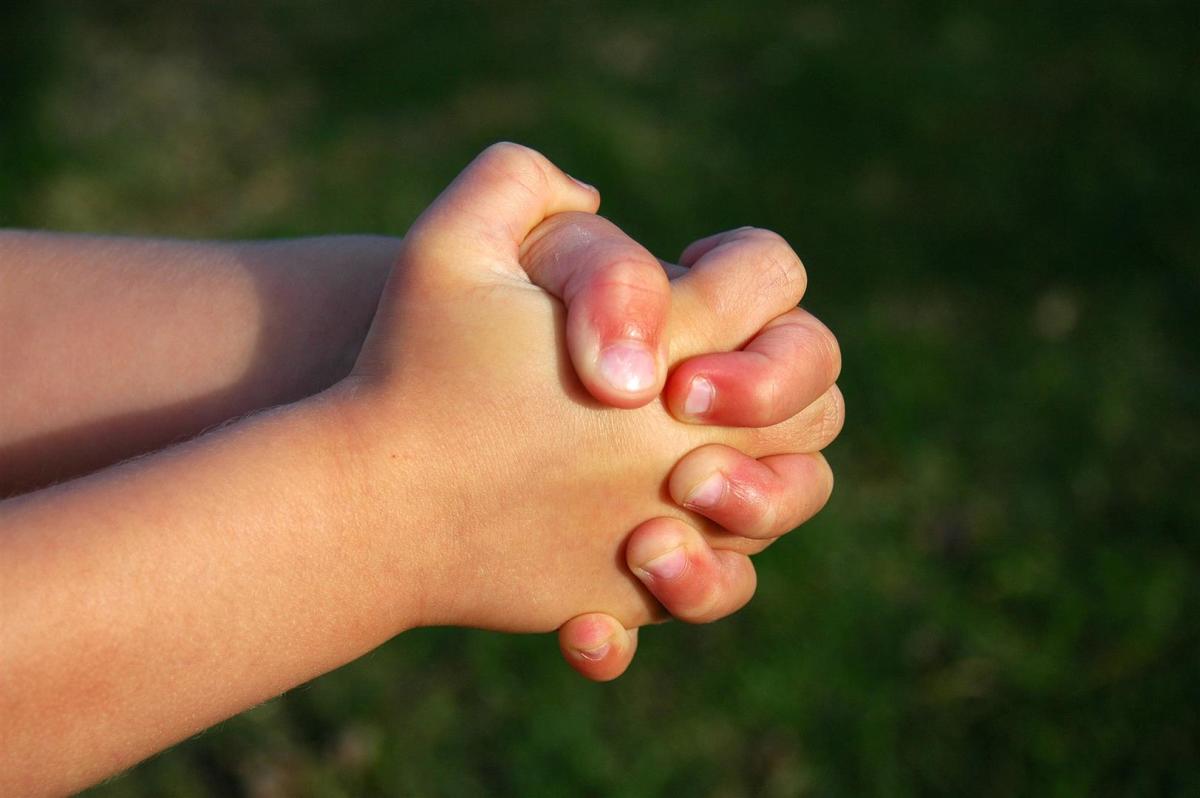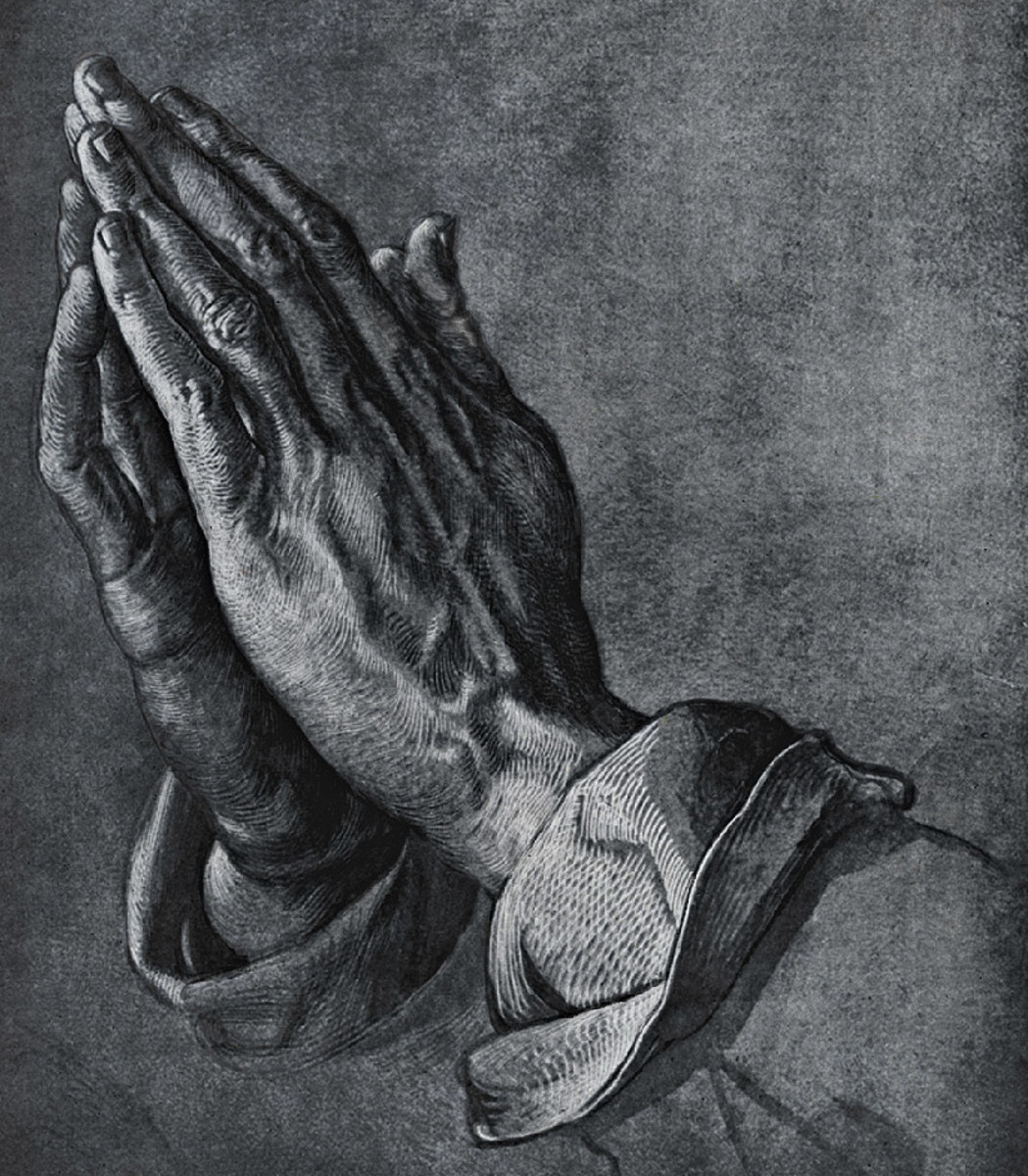Prayer is Individual Communication With God

Reader's Poll
Do you consider yourself to be a praying person?
How Do We Pray?
Those who believe that God is real often believe so because they have regular communication with him. The scriptures first speak of prayer after Adam and Eve left the Garden of Eden. In Genesis 4:26, men were noted to "call upon the name of the Lord."
In Genesis 5:24, Enoch is said to have "walked with God." Noah "walked with God" in Genesis 6:9. Abram "called upon the name of the Lord" in Genesis 12:8 and 13:4. The word "pray" first appears in Abram's communication with his nephew Lot, where it implies a communication associated with intense feelings (Genesis 13:9).In Genesis 14:22, Abram tells the King of Salem of how he lifted "up mine hand unto the Lord, the most high God, the possessor of heaven and earth."
Later, the Lord visited Abram and made a promise with him that he would have seed, and that he would inherit the land. In Genesis 17, Abram's name was changed to Abraham, and the Lord made a covenant with him. He was blessed throughout his life as a result of his continued communication and reliance upon the Lord. His faithful example is a pattern that we can follow. We, too, can call upon the Lord and receive blessings at his hand.
Steps of Prayer
The Savior's example found in Matthew 6:9-13 teaches us the steps of an effective prayer:
- We address our Heavenly Father - "Our Father which art in heaven"
- We praise and thank him - " Hallowed be thy name, Thy kingdom come, Thy will be done in earth as it is in heaven."
- We ask him to bless and forgive us - "Give us this day our daily bread and forgive us our debts, as we forgive our debtors, and lead us not into temptation, but deliver us from evil:"
- We acknowledge him as our Savior - "For thine is the kingdom, and the power, and the glory forever. Amen"
Prayer can be a formal event where we kneel before God in public as part of a worship service, or in our homes with our families. Or it can be informal, where we bow before the Lord in the privacy of our own rooms.
We can pray aloud or silently, using only our thoughts to put up our petitions.Vocal prayer helps us to keep our thoughts and words focused during the action of prayer, and allows us to visualize the words. Silent prayer works best when we are unable to kneel, but our thoughts are directed toward communication with the Infinite.

Why Do We Pray?
Daily prayer brings the Spirit of the Lord into our lives. Humbling ourselves before God and petitioning him in behalf of our families and loved ones, we are able to connect with a power source that is beyond ourselves. We find peace and comfort in times of trouble, and have thoughts come into our minds in answer to questions that we may have.
The reasons for prayer are many and varied. Examples are found in the scriptures:
- Help in solving a difficult problem (Genesis 24:10-19)
- Safety and protection for others (I Samuel 12:23)
- Nearness to God (Jeremiah 29:12-13)
- To keep us safe from temptation (Matthew 26:41)
- Dealing with difficult feelings about those who have wronged us (Matthew 5:44)
- Petition for needed blessings (John 15:7)
In I Samuel 12:23, Samuel tells the people that he prays for them. We, too, can accomplish much good as we pray for others, both those near to us, and those far away. Miracles have been wrought because of the prayers of many in behalf of one who may be suffering intense pain or heartache. Prayer also gives us an avenue of service when other methods may be unavailable due to time and distance.
Others can feel of our love and support when we pray for them. Praying for one's family members softens our hearts toward them. It helps us to be more kind and considerate, and look to their well-being. It also gives us an understanding of how the Lord feels about them as his children. We grow in our ability to love and serve when we pray for our family members.

Repentance
I must beg your forgiveness. I am sorry for all the pain and sorrow that are part of your life because of me. I am sorry for the many times I have yelled at you, hit you, or been unduly harsh to you.
I am sorry for the times you have suffered my anger and wrath because of the choices I made. I am saddened by the consequences we as a family have suffered because I did not heed the counsel I was given, or was blinded by pride that caused me to think I knew all the answers when I really didn't!
I am sorry for robbing you of the happy home life you could have had with a cheerful, loving, kind, compassionate parent. I am sorry for the example I could have set and did not. I hope that you can do better than I have done.
I hope and pray that when the storms of life come to you that you endure them better than I have done. I love each one of you with all of my heart and I want you to have the best of everything God has to offer. Love him, follow him, no matter what happens to me or you!

Prayer Enables Grace to Come Into Our Lives
God allows all men opportunities for change. He puts people and circumstances in our lives that point out our weaknesses, then he offers help in correcting them. Repentance is the process whereby a person turns from the ways of the world and adopts the ways of God.
Grace is personal power that comes into our lives as a result of connecting with God. It starts when we feel his love for us and desire to change. Connecting ourselves with the powers of heaven is like turning on the lights when entering a dark room. The power of the spirit illuminates our minds and hearts, and the pathway before us is opened to the point that we know which direction to take.
As we go forward in this light, our appetites and passions change, and we have a desire to help others. There will still be times when we stumble and fall, but rather than producing anger and frustration, we are humbled as the Lord help us to pick ourselves back up and move forward.

Attending Church Enables Prayer
Attending a worship service allows us the opportunity to join with others in the action of prayer. We are able to connect soul to soul with those of similar faith and beliefs as we join a congregation of fellow worshipers. Prayer is a large part of most worship services, not only formal prayer, but private prayer.
The taking of the emblems of our Savior's sacrifice allows us to recommit ourselves to a life of service to him in exchange for his spiritual assistance. The time taken to contemplate his life while receiving the emblems gives added understanding in ways that we can improve ourselves and help others. It is during this time of meditation that inspiration comes.
Getting involved in volunteer service as part of church attendance helps us feel closer to our Heavenly Father and gives additional chances for us to bring his spirit into the lives of others. Our knowledge and understanding of the scriptures that is gained through worship and study assists us in being better people. Prayer is a big part of the life of the practicing Christian, and enables peace in life.
This content is accurate and true to the best of the author’s knowledge and is not meant to substitute for formal and individualized advice from a qualified professional.
© 2011 Denise W Anderson








